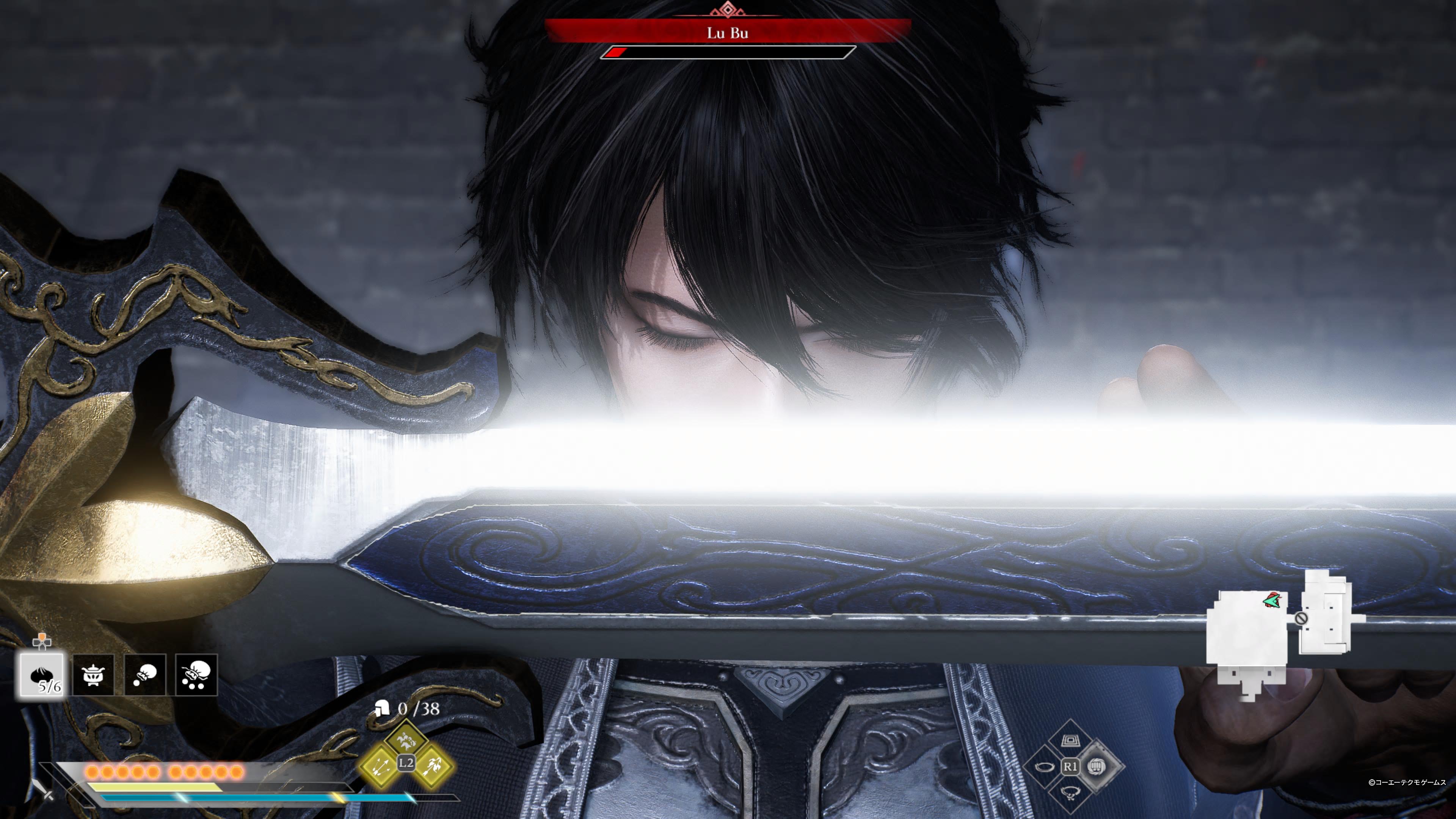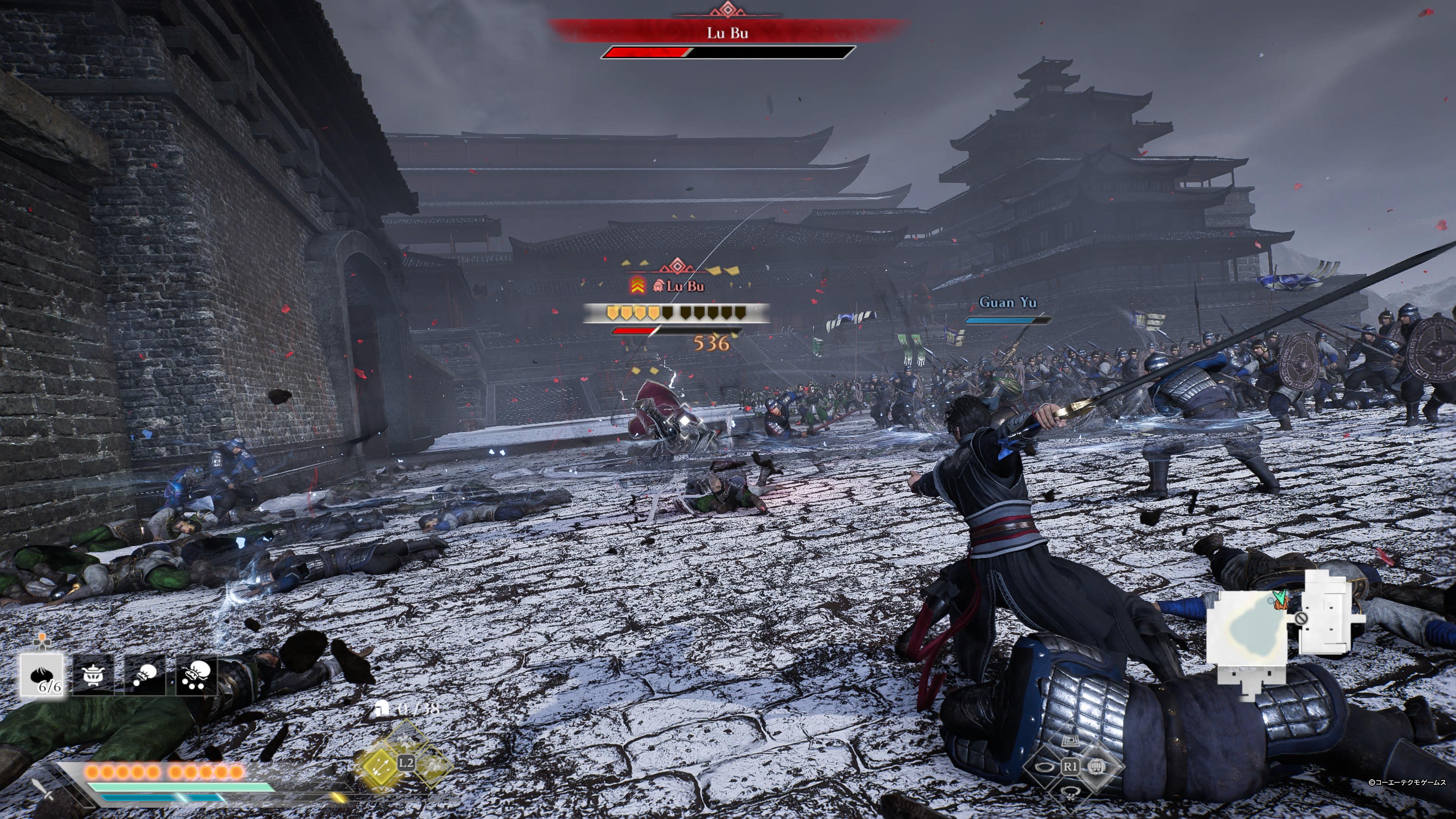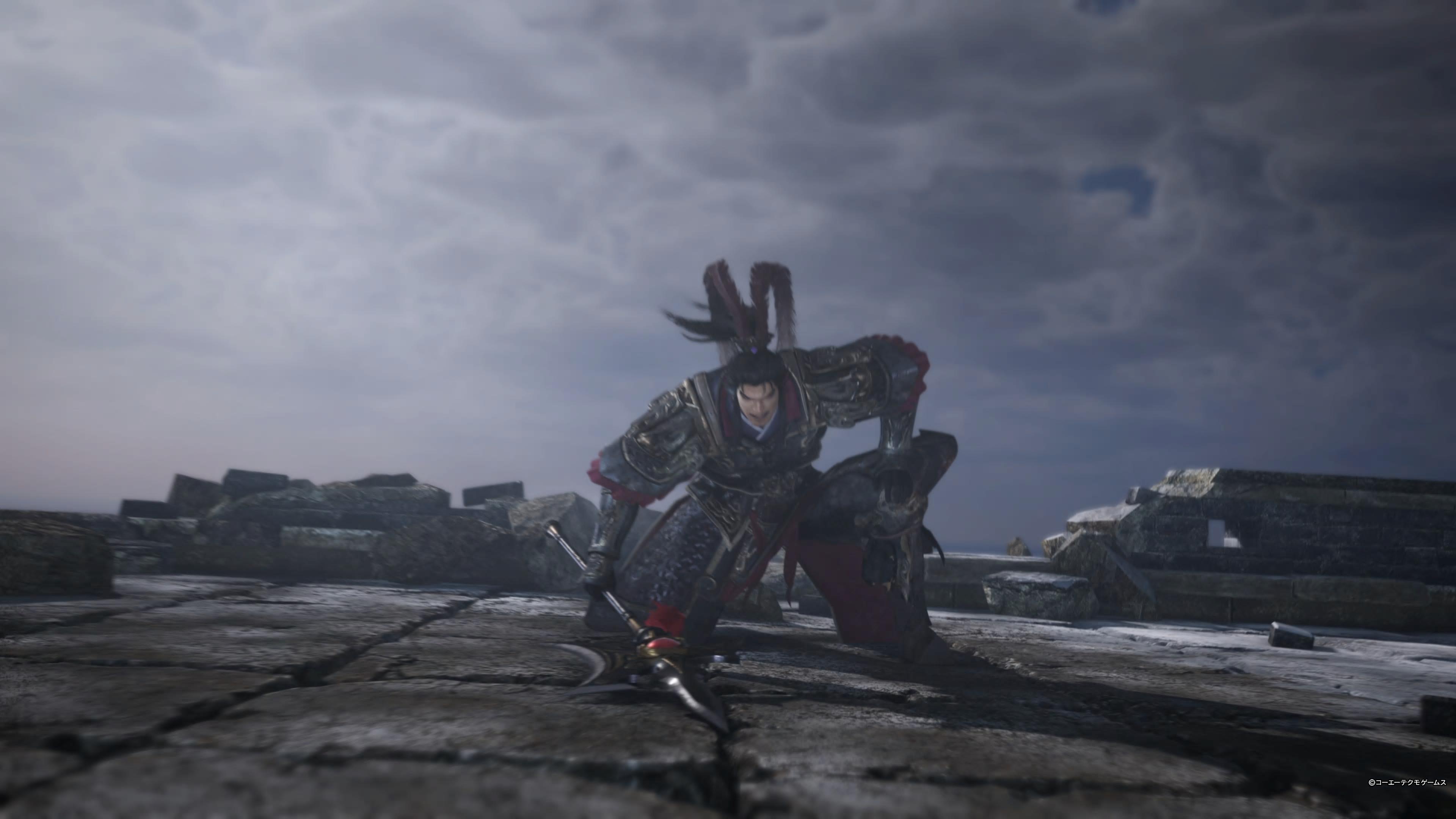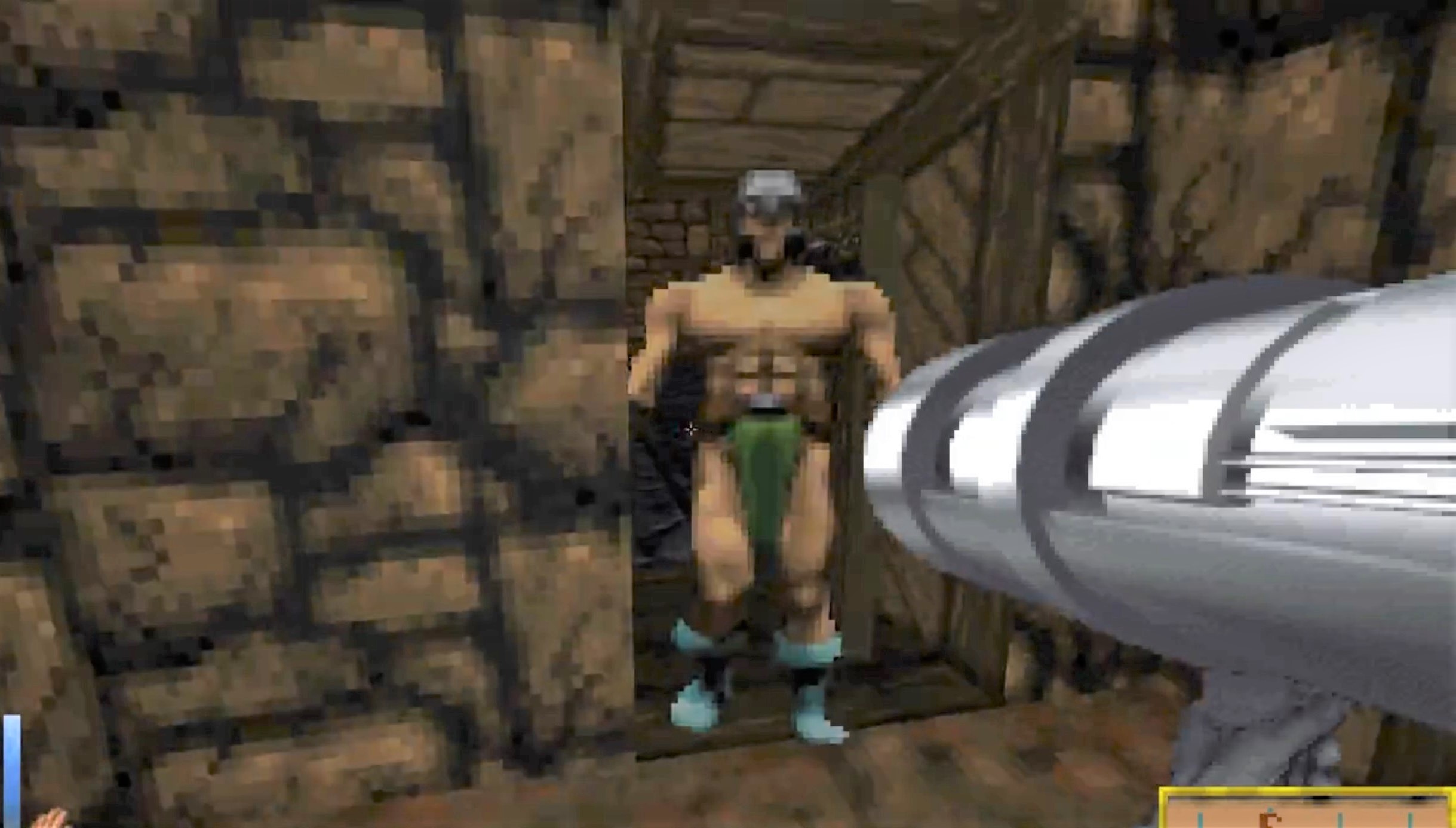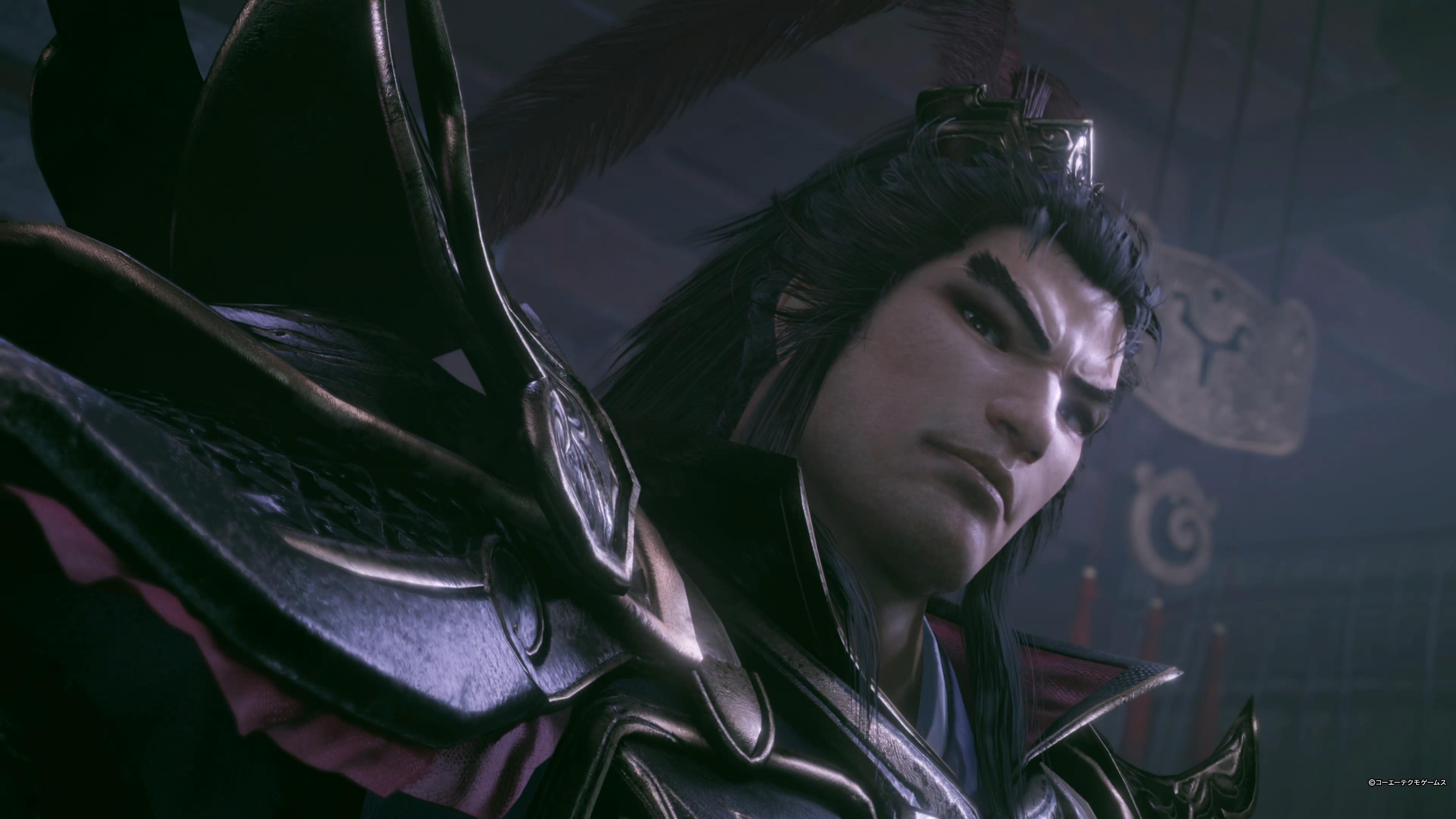
You really can find love on the battlefield.
The last mainline Dynasty Warriors game I played is so old that it could buy me a drink, but I still remembered the five immortal words uttered by ardent fans when I booted up Dynasty Warriors: Origins: Do not pursue Lu Bu. When I first came face-to-face with the infamous warlord in Origins, the game spared no expense to establish how fearsome he is. “That’s Lu Bu… a ferocious man whose skills are legendary,” said my then-companion Cao Cao. “Don’t risk your life fighting him.” My mission objective changed to “Escape with Cao Cao,” and a warning flashed on the screen saying “Be cautious of Lu Bu’s approach!”
There is only one sacred rule on the battlefield in Dynasty Warriors. Don’t. Fight. Lu Bu. Naturally I charged headfirst into Lu Bu’s direction and enjoyed about 40 seconds of intense action before he slaughtered me.
I can’t see an enemy hyped up that much without getting curious. Truthfully, I didn’t intend to fight him more than once. I was early in Dynasty Warriors: Origins’ campaign, and I knew I’d almost certainly get beat down bad. Yet after I chipped off a sliver of Lu Bu’s health during that round, my curiosity wasn’t sated. His attacks were fierce, but the wide swings of his spear and his dramatic dive attacks couldn’t have been more telegraphed. He wasn’t wiping me out in one shot, so I knew I had room to make mistakes. And I could swear I detected a hint of disappointment when Lu Bu said “…Hardly worth my time” after I fell.
The game’s telling me to run, but is it really? If Lu Bu is supposed to be unstoppable, why did Omega Force put so much effort into making him look so surmountable? “He’s right at the start of the stage, so one more try,” I thought to myself.
Twenty minutes and several beatings later, it was “Oh, so his third hit on his bow and arrow attack has a delay, I’ll wait to pull off a perfect dodge there next time.” After 40 minutes my bouts with Lu Bu were lasting long enough that Cao Cao started begging me to help him retreat. His cries fell on deaf ears. I was hungry for the sweet taste of victory. An hour later my grind finally came together in one near-perfect run; I made Lu Bu retreat from the battlefield, with barely enough time left to save Cao Cao in the end too.
With adrenaline coursing through my veins, my award for my tussle against this incredible foe was… basically nothing. I couldn’t have been happier.
The purpose of challenge
Games have conditioned me to undertake challenges for the sake of a reward at the end. Optional bosses and sidequests typically exist to shower us with experience points and loot. Otherwise, a difficult boss may exist to test my skill before I can advance the main story. Even most modern multiplayer games offer a drip feed of cosmetic prizes to motivate players to queue for just one more game. There’s nothing inherently wrong with these systems—I enjoy the dopamine rush of leveling up and equipping good gear as much as anyone. So why did winning that Lu Bu fight feel so much more rewarding in the end?
Dynasty Warriors: Origins made it clear to me that I should have run, and in doing so it attacked my pride. I don’t think I’m an egomaniac by nature, but you have to understand that at every opportunity before Lu Bu showed up, the game went out of its way to stroke my ego. Few games are as empowering as Dynasty Warriors. I am the one true “Guardian of Peace,” the strongest swordsman in the land, and perhaps most importantly, a true warrior of the Three Kingdoms. I can kill literally dozens of soldiers with a single swing. By endgame I know I’ll have obliterated entire armies. By building me up so high, only to dangle a clearly beatable challenge in front of me and tell me I couldn’t handle it, I felt like a teenager learning to say no to his parents for the first time.
Clearly, Lu Bu was carefully balanced so players could opt to defeat him instead of running away, but the fight was framed in such a way that I knew I only engaged with him for my own satisfaction. That was all the reward I needed.
It’s such a clever trick that I fell for it again when Lu Bu showed up a mere two battles later, this time on horseback and with a plethora of new attacks to dodge. My loyal companions warned me against challenging the legendary Lu Bu, but they couldn’t even finish their dialogue before I threw myself on my horse and rushed headfirst into a jousting match. Regardless of the prize at the end, I was too invested in my self-imposed rivalry with this guy to ignore him. And though this was far from the last time Lu Bu would ambush me on the battlefield, I was happy to see him again.
An unlikely romance in the Three Kingdoms
If I have one complaint about Dynasty Warriors: Origins, it’s that I would have loved more boss encounters like Lu Bu. There was only one other opponent during my playthrough that I’d consider a “boss” in the traditional sense, and these encounters achieved highs I never thought possible in a Musou—a style of game mostly built around smashing legions of weaklings. I had tons of fun mowing down entire armies of enemy soldiers as if they were blades of overgrown grass. But there is nothing like fighting for my life against an overwhelming foe in the middle of a crowded battlefield as soldiers on both sides are caught in the crossfire until only one person is left standing. I can’t muster the same excitement for Dynasty Warriors: Origins’ 40th guy with a big hammer who uses the exact same moves that the 39 hammer guys before him did.
I began to feel a weird kinship with Lu Bu. Dynasty Warriors: Origins repeatedly addressed me as the “Guardian of Peace,” yet I never believed in that title. With my body count reaching into six-digit figures after my first playthrough, “peace” is the last thing I’ve kept. Meanwhile, when I see Lu Bu charge into battle on his horse, trampling entire armies while he claims his enemy’s strongholds for himself, I realize he’s going through the exact same motions as I am. In fighting Lu Bu whenever I see him, I break the story structure that treats him as an unbeatable foe that I need to fear. It’s an act of defiance against the title “Guardian of Peace” that exposes why I’m really here; the sheer power fantasy of overcoming the toughest challenges the Three Kingdoms have to offer me.
I initially thought I might be reading too hard into my relationship with my rival, considering Koei Tecmo’s series is not exactly Sun Tzu. But then I realized that Dynasty Warriors: Origins’ interpretation of Lu Bu actually reciprocates these feelings. In a certain scene that fans have interpreted as intimate to the point of being romantic, he expresses joy in finally finding someone whose strength is worth his attention. It’s a cursed friendship, as it will inevitably end when one of us claims the life of the other. At the same time, its sincerity doesn’t just speak to my in-game avatar; it addresses me as the player behind the screen holding the controller. So as we watch the sunrise together, I take solace in knowing that we complete each other in our pursuit of challenge for the sake of challenge. Whether that hint of disappointment I first detected in Lu Bu’s voice was real or just my imagination, I’m glad it led me here.
“With you around, life will never get boring—even after I’ve claimed this world,” Lu Bu confesses. “You’d better make it through all of this alive. For you are the only one who can offer me such amusement.”
I feel the same way, Lu Bu. You’re worth my time.

